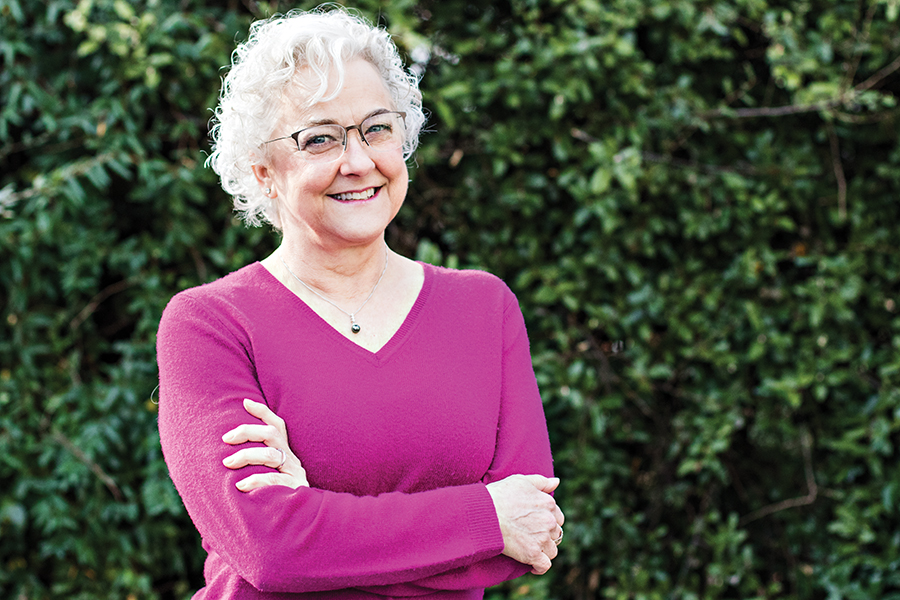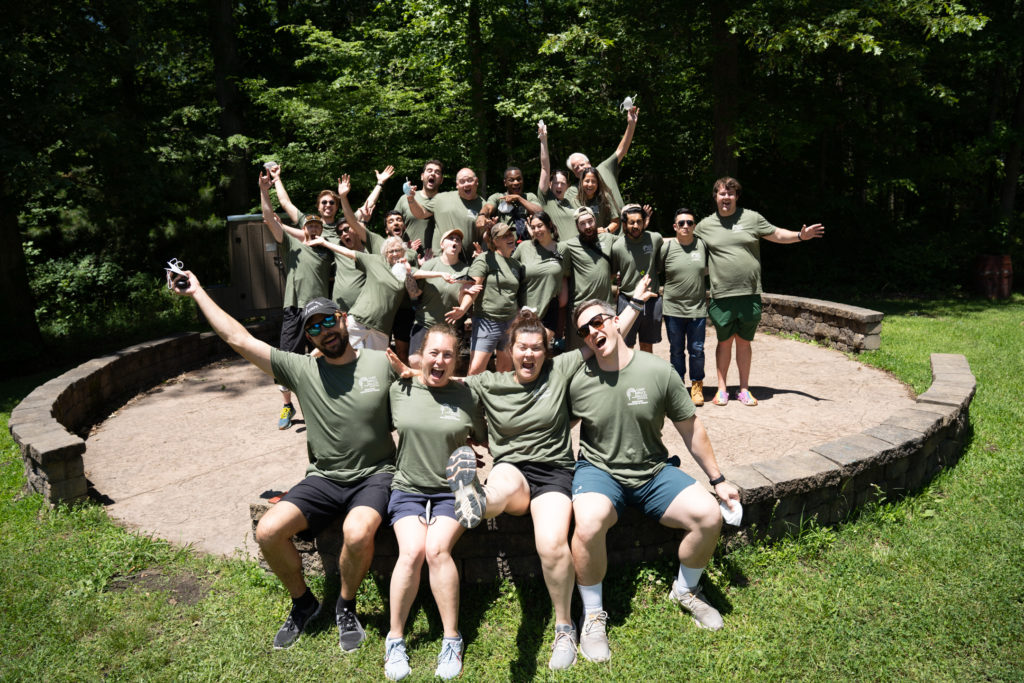Your Cart
Caregiving, Leading, and Loving

This post was written by BIAV's Executive Director Anne McDonnell.
I’m not sure how many of you know that before I became Executive Director of BIAV, I worked as an Occupational Therapist at Sheltering Arms Hospital; for more than 15 years, I worked exclusively with brain injury patients on their road to rehabilitation. From acute to community-based care practice settings, I’d seen the toll a brain injury took on family and friends. But I didn’t appreciate all the sacrifices being made by family caregivers for the sake of their person. BIAV’s Camp Bruce McCoy changed that for me, and many of you have heard me talk about the profound impact a caregiving moment had on me. I’ve said many times since then that the reason I’ve stayed in this job, despite setbacks, hard times and heartbreak, is because of what I learned about caregiving at Camp.

And because I still had lessons to learn, I experienced my own caregiving journey in a deeper way. The last two years of my mother’s life were very difficult; hit with one medical issue after another, the loss of her health and independence dimmed her spunk, but not her ability to teach me a thing or two. Like how the way I taught transfers in the hospital wasn’t always “best practice” at home. Or how to grieve the changes we were all experiencing, but remain resilient and grateful to get through the day. And how to serve your caregivers. My family had the luxury of having several of us present for her and my dad, but he carried most of the weight; he frequently said to me that he’d never heard her complain. In our quiet moments together, Mom told me she never would, not to any of us. Because we had seen her at her most humble and helpless; because we had done things for her she would have never imagined asking anyone to do. Because we never looked away.
In my family, I was able to corral the troops so no one had to go solo or try to do it all.
But I’ve seen caregivers compromise on work and miss meetings, spend their weekends catching up with work, relationships and home, and let go of their interests, their own self-care, and their other roles. So as I thought about what I’d say to you today, it’s this – “It is not the load that breaks you down. It’s the way you carry it.”
The strength to maintain our caregiving roles is found in surrendering the idea of going it alone. Caregivers do better surrounded by an army of care, so accept and ask for help. Asking others for help can be an awkward and difficult thing to do, but you may find that once you take the step and ask for some support, it is much easier and fruitful than you expected. Many times, family members and friends are willing, but just don’t know how to help, so give them something specific to do. If you can’t get enough help from your friends and relatives, learn about and take advantage of community resources.
Caregivers do better surrounded by an army of care, so engage with others. Sometimes a person just wants to have their feelings understood. Talking to a friend or trusted family member or joining a caregiver support group – either face-to-face or an online group can be helpful. You will find some information helpful, some useless, some brilliant, and some well-intentioned but out of touch with what is now your reality. You may find the wisdom to help you readjust your inner dialogue and manage the expectations you create for yourself and others. You may learn to be more assertive and grow to be more grateful. Of course, this is easier said than done, but it’s a healthy direction; the give and take of engaging and building positive relationships won’t just energize you, it will lessen loneliness and isolation.
And lastly, caregivers do better surrounded by an army of care, so take care of yourself. There’s a reason they tell you to put your own oxygen mask on first when you’re on a plane. It’s because if you are panicked and fumbling trying to get your child’s on and you pass out, you are not going to help either one of you. I know it goes against your instincts to put your needs first, but it’s critically important. The physical and emotional demands of caregiving may weaken your immune system, leaving you more likely to get sick and stay sick longer, so keep your own doctors’ appointments. Caregiving may also increase your risk of depression. Before you know it, you may drift away from your family and friends — at a time when you need them the most. Don’t ignore feeling sad, frustrated or exhausted, and seek counseling if you need.
How many of you have heard of the Caregiver Bill of Rights? Written in 1985 by Jo Horne, these essential rights of all caregivers have been around for 30+ years. These rights, written decades ago, are still relevant today, so as you read a few of these statements, ask yourself if any of them resonate with you.
I have the right to:
- Take care of myself, because it gives me the capability to take better care of my loved one.
- Seek help from others because I recognize the limits of my own endurance and strength.
- Maintain facets of my own life that do not include the person I care for, just as I would if they didn’t need my care.
- Get angry, be depressed, and express other difficult feelings occasionally.
- Receive consideration, affection, forgiveness, and acceptance for what I do for as long as I offer these qualities in return.
- Expect and demand that as new strides are made in finding resources to aid and support those who need care, similar strides will be made towards aiding and supporting caregivers.
Your loved one’s diagnosis is also your diagnosis, and though you don't personally experience the pain and fog, you still experience brain injury in a deeply personal way. You have been as much a part of the journey as your loved one, despite being overlooked at times by the system and not getting the care you needed. You were there in those long moments of solitude while they slumbered under a cocktail of drugs meant to help, and when they went into another surgery. You were there for conversations they weren’t lucid enough to understand or remember. And you’ve been there ever since, standing witness to something you can’t fix but do make better. Whether or not they’ve told you before, they are grateful for your love, support, and presence.
